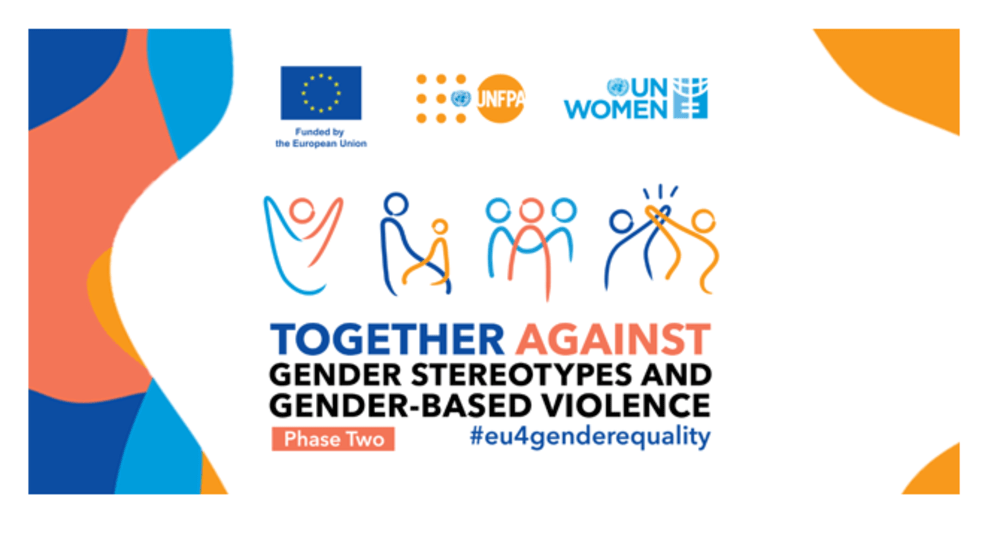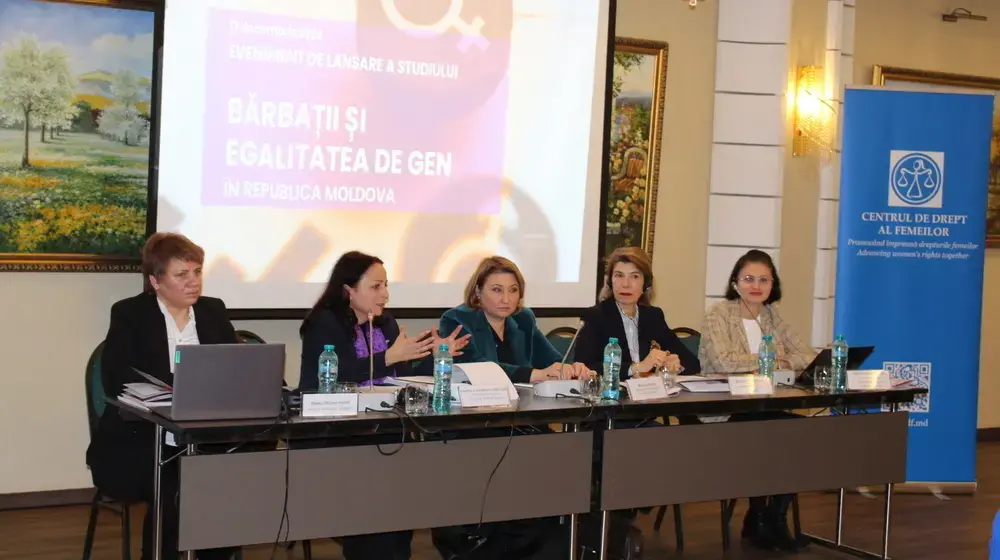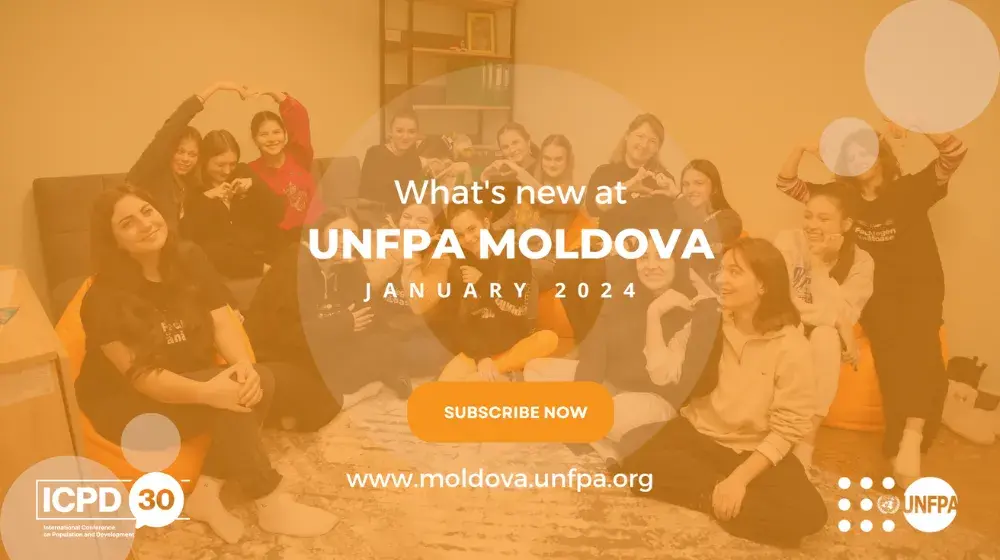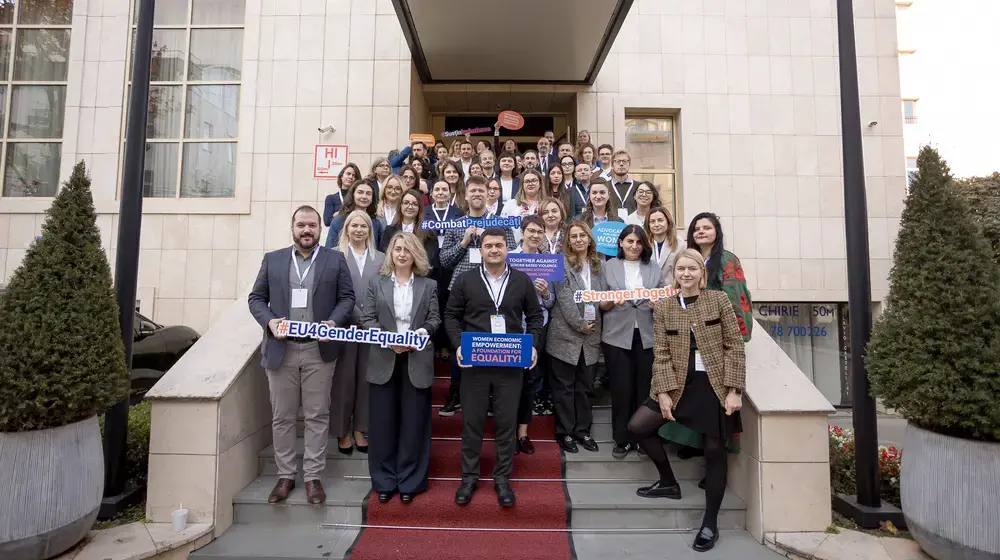The United Nations Population Fund (UNFPA) and the United Nations Entity for Gender Equality and the Empowerment of Women (UN Women), together with the European Union (EU), started the Phase II of the regional programme “EU 4 Gender Equality: Together against gender stereotypes and gender-based violence”. The programme aims to reduce gender discriminatory attitudes and practices between women and men in institutional and community spheres, including unpaid domestic and care work in six Eastern Partnership countries: Armenia, Azerbaijan, Belarus, Georgia, the Republic of Moldova, and Ukraine. Across Moldova the programme will be implemented in Orhei, Ialoveni, Ștefan Vodă, Căușeni and Fălești regions, including Chișinău municipality.
Over the past three decades, Moldova has undergone significant transformations in terms of promoting and ensuring gender equality. Even so, more efforts are needed to build an equal society. Women and girls in Moldova face numerous challenges that limit their human rights, including limited access to economic opportunities and a high prevalence of gender-based violence. The Gender Equality Index data for the year 2024 indicates that the "Access to Resources" and "Perceptions and Stereotypes" sectors have experienced a regression compared to the previous year, with the latter recording a decrease of two percentage points. Discriminatory gender stereotypes and social norms continue to perpetuate these inequalities, highlighting the need for a coordinated and sustainable approach to address them.
The second phase of the "EU 4 Gender Equality” programme, running from January 2024 to May 2026, is supported by a total budget of €5 million, and €741,000 for Moldova. The planned activities target governmental institutions, community leaders, civil society, and the private sector, aiming to contribute to promoting positive norms among the general public. The program will continue to focus on eliminating gender barriers, promoting equitable norms, and building safer communities for girls and women.
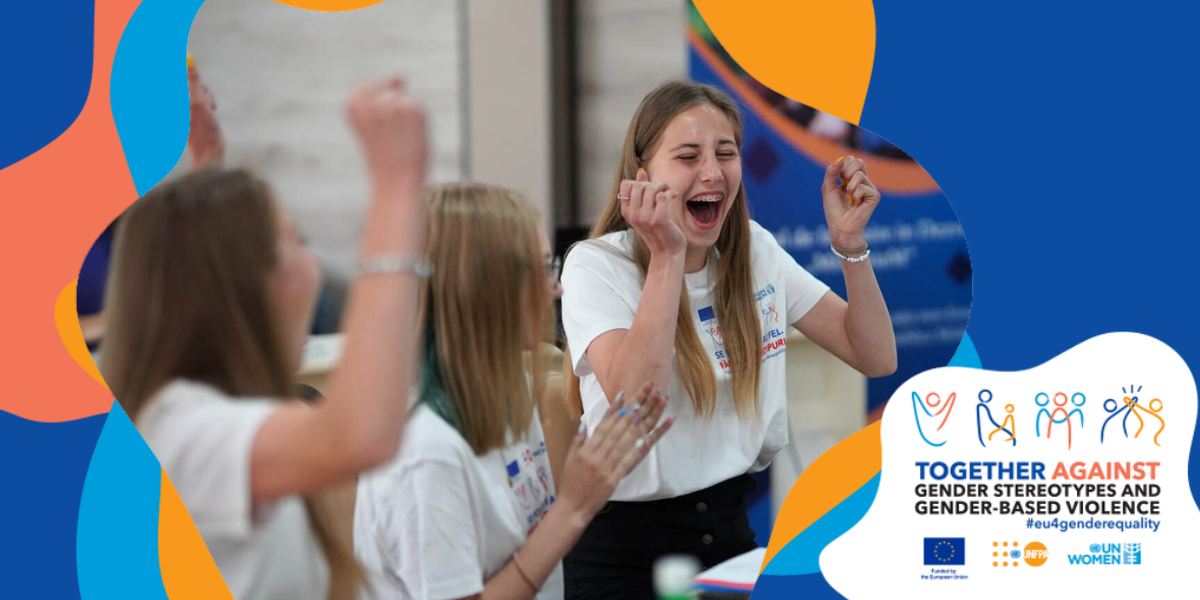
"The EU's support in eliminating gender stereotypes in Moldova is an essential component of our commitment to promoting human rights, democracy, and gender equality in the country and in the region. In the next phase of the project, EU funded grants will be provided to civil society organizations to create strong partnerships with local actors to prevent violence against women and girls. By this action, we aim to contribute to building an inclusive and equitable society which will bring Moldova even closer to EU family.", said Jānis Mažeiks, Ambassador of the European Union to the Republic of Moldova.
“UNFPA stands with its partners to advance gender equality in Moldova through promoting social inclusion, fostering stronger social bonds and community resilience, to unlock the full potential of our human capital and build a more prosperous, peaceful, and sustainable world for all. Gender Based Violence prevention is at the heart of UNFPA work, globally and in the Republic of Moldova – we aim to achieve zero cases of gender-based violence and harmful practices against women and girls – this is one of our transformative goals”, said Karina Nersesyan, UNFPA Moldova Resident Representative.
"Through the collaboration with local organizations and other development partners, UN Women is dedicated to support empowering young women and men in challenging gender stereotypes. This goal will be pursued through digital and social initiatives aimed at fostering comprehension of gender equality, positive masculinity and zero tolerance for gender-based violence. Furthermore, our commitment extends to empowering women from marginalized communities by increasing their awareness of their rights and encouraging their active involvement. Through these efforts, we strive to promote the advancement of a more inclusive society.”, said Dominika Stojanoska, UN Women Moldova’s Country Representative.
The second phase of the "EU 4 Gender Equality” programme is set to launch information campaigns and community activities to combat harmful gender stereotypes, aiming to secure enduring societal transformations. By collaborating with non-governmental organizations, the programme will support women and girls from underrepresented groups, including women with disabilities and Roma women. The focus will be on strengthening their knowledge of their rights, including sexual and reproductive rights, and raising awareness about gender-based violence and the available services.
Furthermore, the program will support the implementation of the "Fathers' Club" initiative, which provides current and future fathers a dedicated space to receive support and resources for active involvement in childcare and education, as well as participation in activities traditionally viewed as women's roles. Another program initiative, "Voices Against Violence", involves developing a non-formal educational curriculum. Its aim is to empower children and youth by raising awareness of their right to live in an environment free from violence and discrimination. Additionally, it will equip them with the essential skills to articulate their views and intervene against violence within their community.
Since the launch of the programme in 2020, the campaign reached 3 million views at national level, including online engagement. Four civil society organizations implemented grant-funded projects that champion gender equality. Over 2,900 individuals from 12 localities in Straseni, Falesti, Donduseni, Orhei, Rezina, Ialoveni, and Drochia districts actively engaged in the "It can be different, without stereotypes" campaign, but also in the various activities organized by the partner NGOs. These initiatives addressed gender stereotypes and gender-based violence through social theater performances, debates and mural painting. In addition, over 300 boys and men engaged in activities through eight Fathers’ Clubs, which heightened their awareness of the importance of being involved in household responsibilities and childcare. Positive changes were captured in human interest stories, about women, men, girls and boys whose lives have improved through the new experiences and knowledge they have.
The programme in Moldova aligns with the UN’s Sustainable Development Goals (SDGs) and the EU’s Action Plan "Gender Equality and Women's Empowerment: Transforming the Lives of Girls and Women through EU External Relations 2016-2020."
*****
About the European Union:
The European Union is an economic and political union of 27 European countries. It is founded on the values of respect for human dignity, freedom, democracy, equality, the rule of law and respect for human rights, including the rights of persons belonging to minorities. It acts globally to promote sustainable development of societies, environment and economies, so that everyone can benefit.
About UNFPA:
UNFPA, the United Nations Population Fund, operates globally to achieve three transformative results, a mission that promises to change the world for every man, woman, and young person: to build a world where every pregnancy is wanted, every childbirth is safe, every young person can fulfill their full potential, and to eliminate gender-based violence and harmful practices. UNFPA's work in Eastern Europe and Central Asia is coordinated by the Regional Office based in Istanbul. For more information, please visit: https://eeca.unfpa.org/en.
About UN Women:
UN Women is the UN agency dedicated to gender equality and the empowerment of women. As a global champion for women and girls, UN Women was established to accelerate progress in meeting the needs of women and girls worldwide. In Moldova, UN Women focuses on five priority areas, one of which is the elimination of violence against women and girls. The UN Women Regional Office for Europe and Central Asia was established in Istanbul in 2014. For more information, please visit: https://eca.unwomen.org/en.

